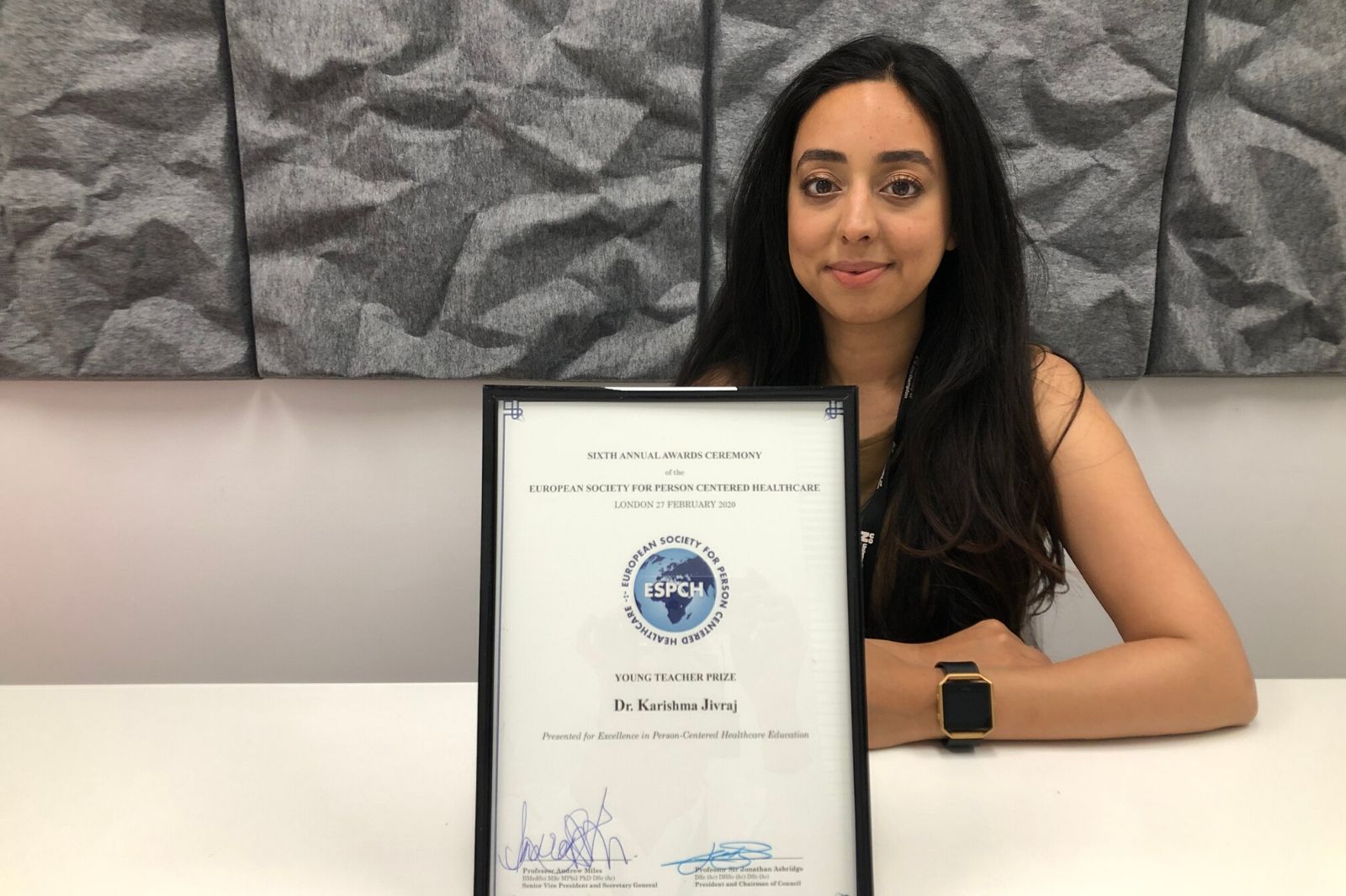Lecturer’s person-centred teaching wins European award
Date 12.03.2020

A lecturer’s commitment to ensure future therapists always keep their patients and clients at the centre of everything they do has seen her win a European award.
Karishma Jivraj joined the University of Northampton in 2018 as Lecturer in Mental Health and Health Psychology and her specialist area is person-centred therapies.
Her work imbuing her professional passion in her students saw her awarded The Young Teacher Prize 2020 at the European Society for Person Centred Healthcare Conference last month.
She was commended for her approach to teaching that has seen her translate her PhD into learning practice.
This includes a commitment to student centred learning, allowing students to actively try person-centred care approaches in class (using case studies and role play methods) and designing teaching modules to incorporate these elements (such as having a lecture dedicated to mental health in practice).
The award also recognised Karishma’s – who is 31 – PhD research*. For this, she investigated shared decision making between health professionals and people with mental health conditions and how this and the therapeutic relationship impact medication use.
She said: “It felt good to receive the award. Not because I had won something, but because it recognises the work put in and that leading experts in their fields recognised the importance of what I am passionate about. To sit among them, I felt truly humbled and appreciative.”
Her work is also reaping benefits for her students: “Psychological therapy and mental health care, like other fields of health and care, have had a sea change in recent decades. Rather than the ‘doctor knows best’ attitude of the past, the patient – or client – is right at the heart of how they are treated.
“But what therapies are the best and why are questions where answers are always developing, with new research informing us how to educate and train mental health professionals.
“At Northampton, I have many students who are seriously interested in pursuing therapy or mental health as vocations and they are really taking on board what we discuss in class.
“Giving them evidence-based knowledge and tools will equip them to engage in impactful person-centred therapeutic relationships.”
Karishma’s energies have seen the flowering of new, collaborative networks with local health providers in Northampton that, it is hoped, will see University students embark on their own research into person-centred therapy and care.
Find out more about Psychology degrees at the University of Northampton.
*Her key findings showed that perceptions of attempts at person centred care, (including therapeutic relationships and shared decision making) differed greatly amongst patients and clinicians, with “power asymmetry” embedded into the narrative.